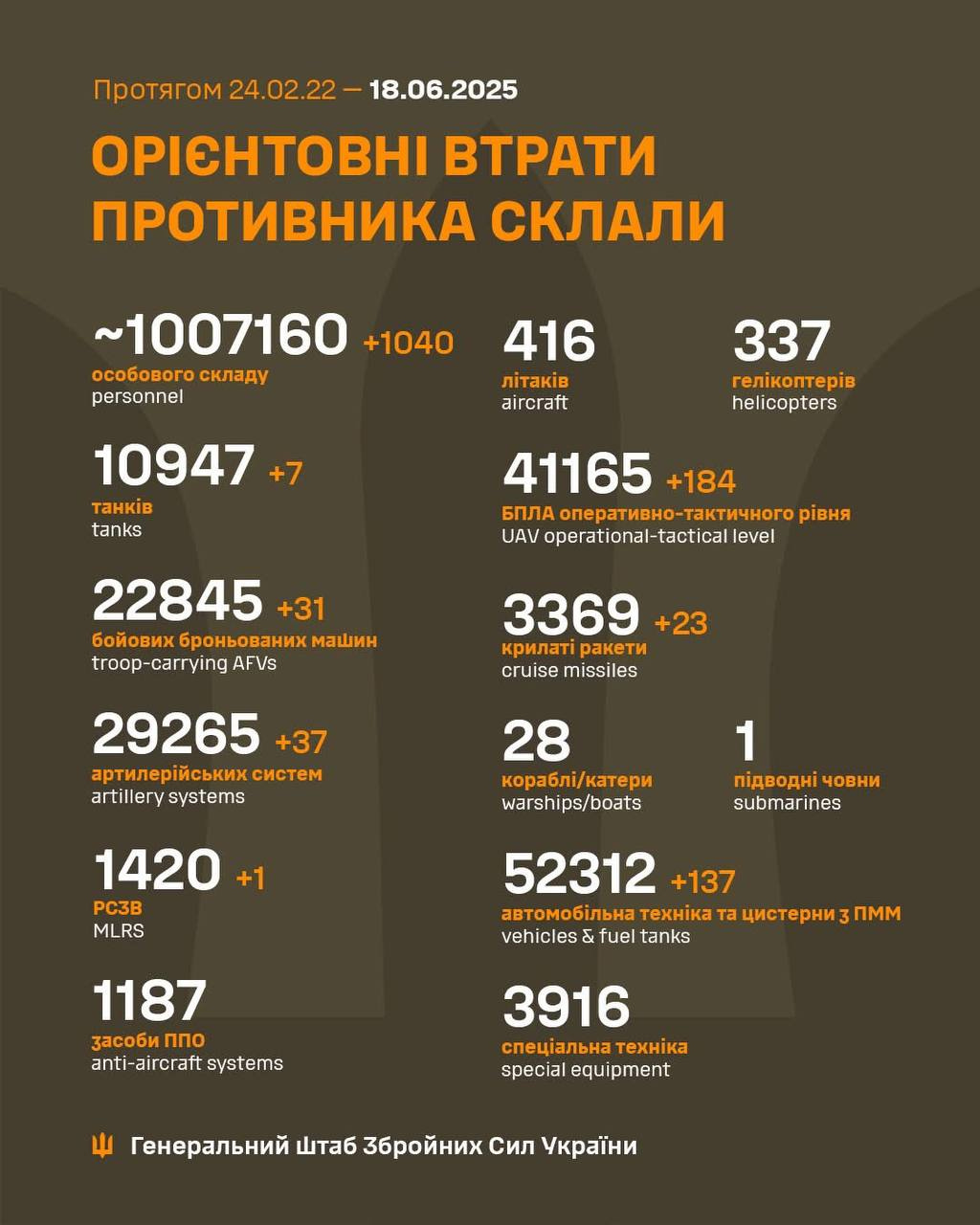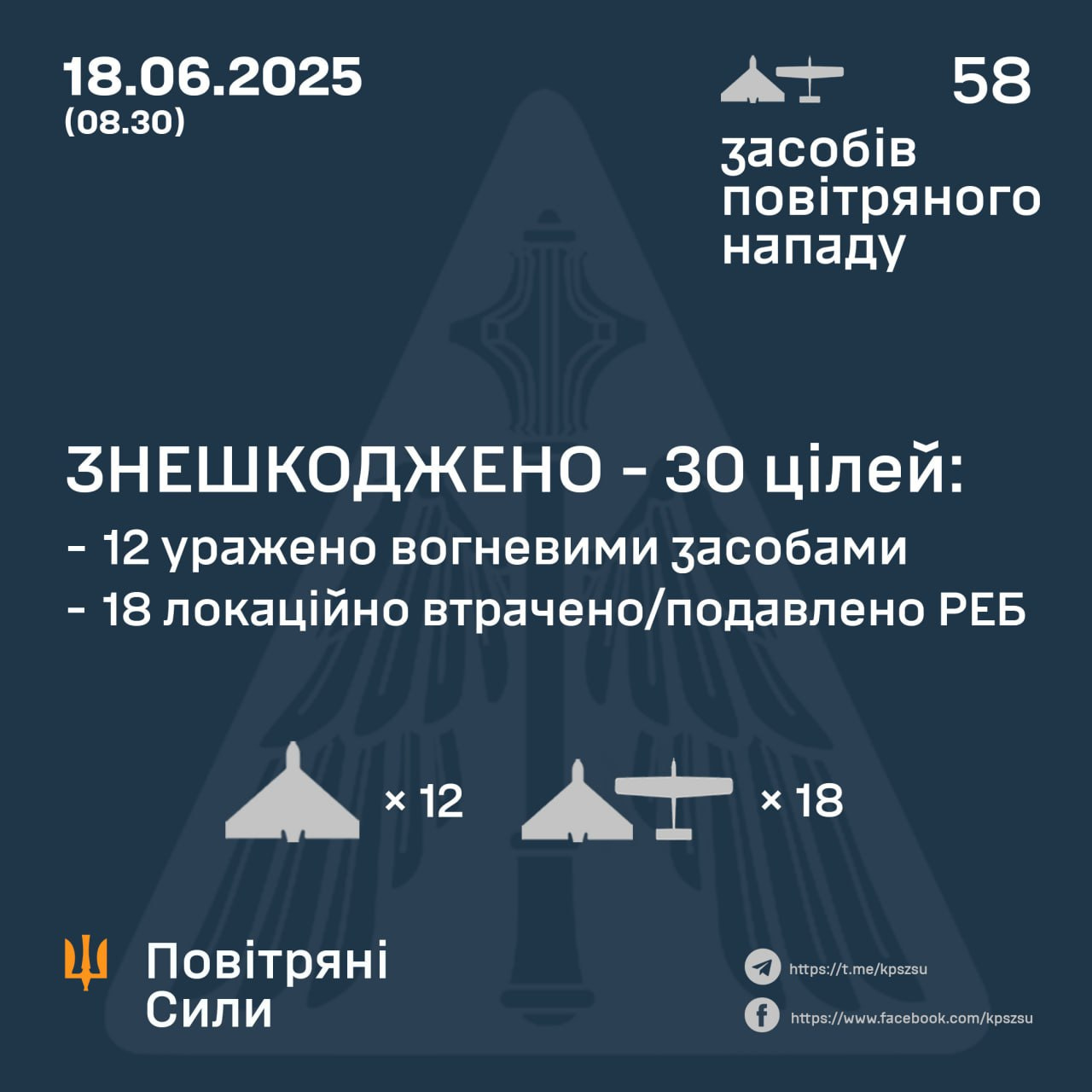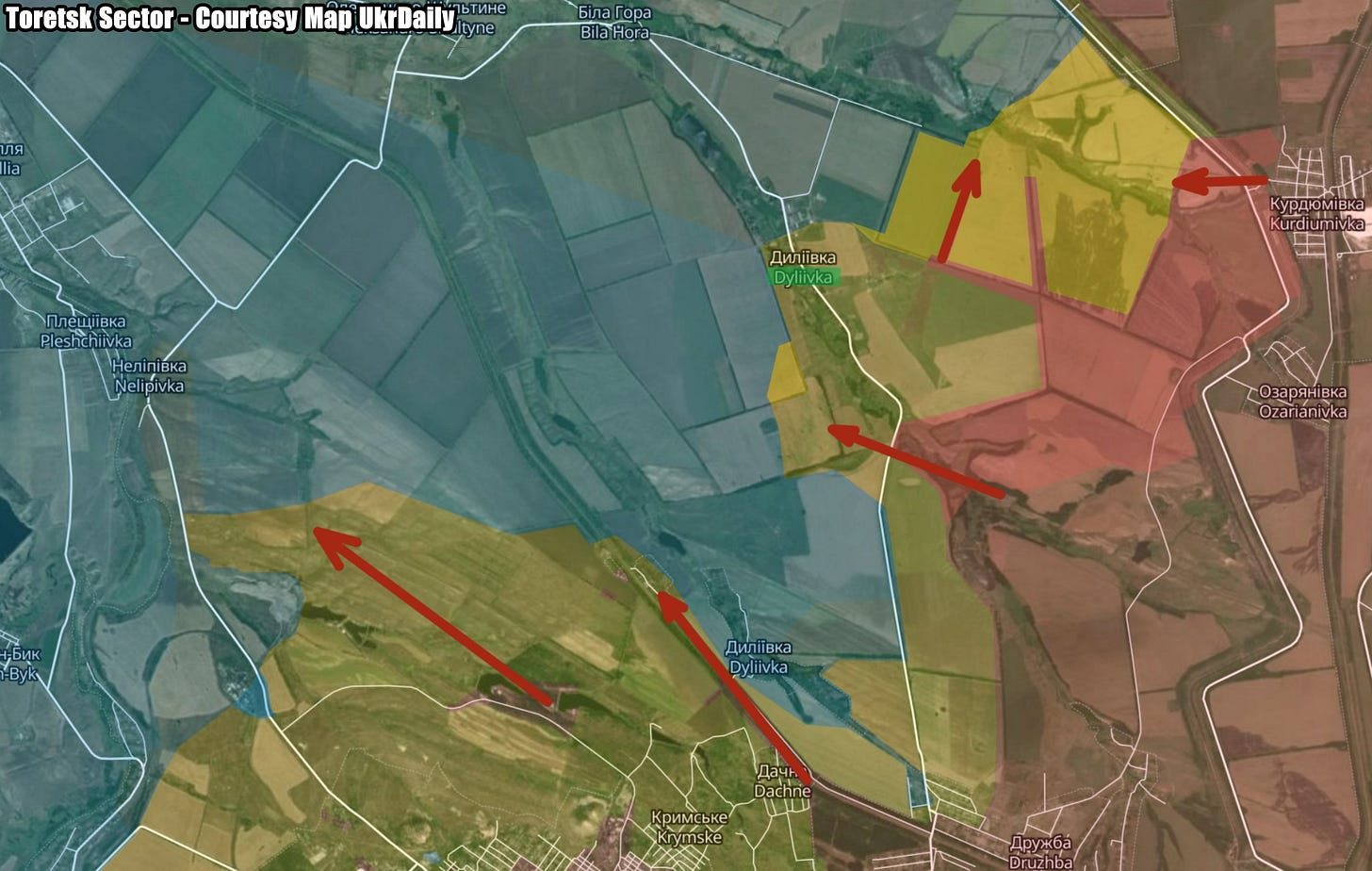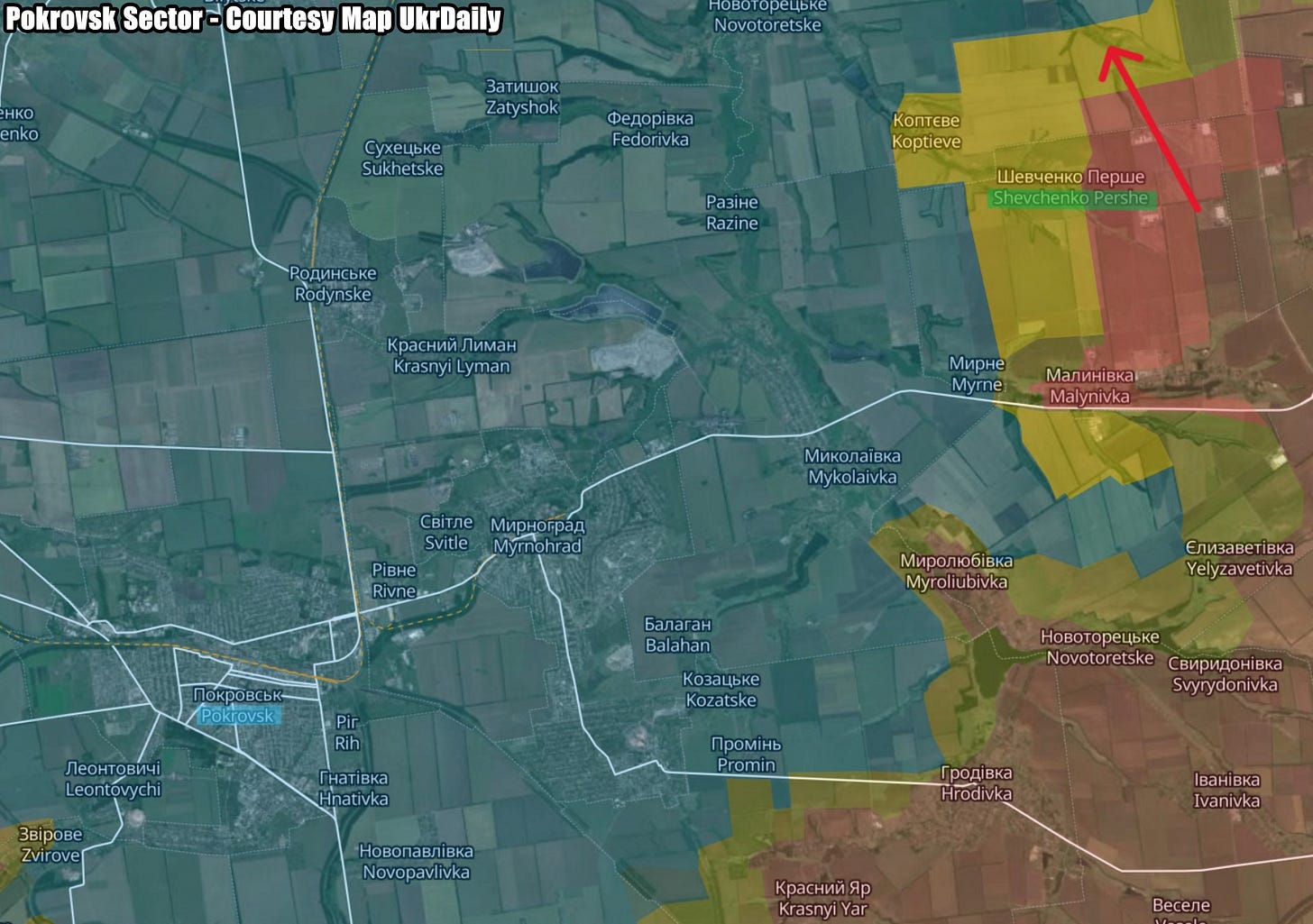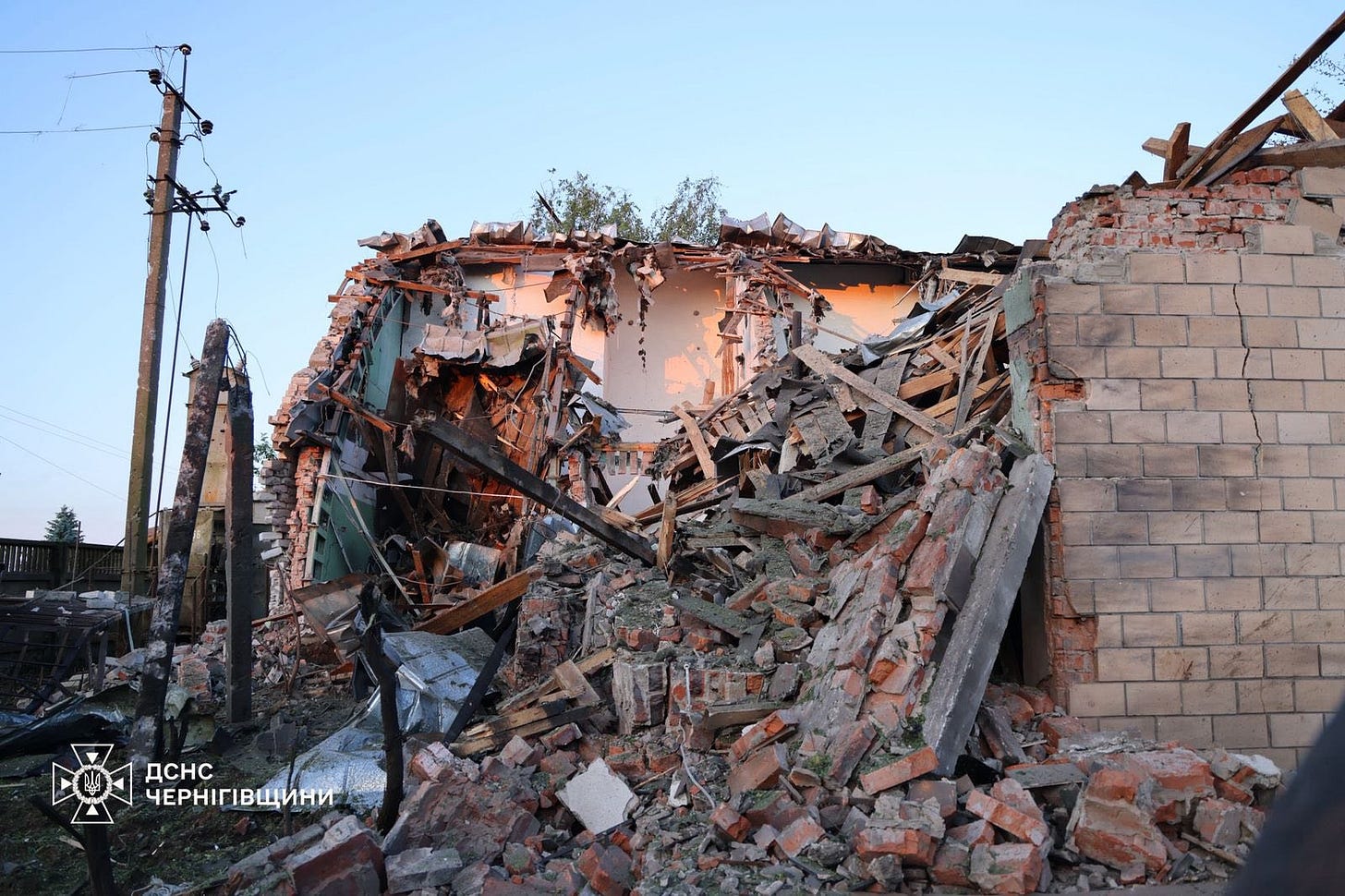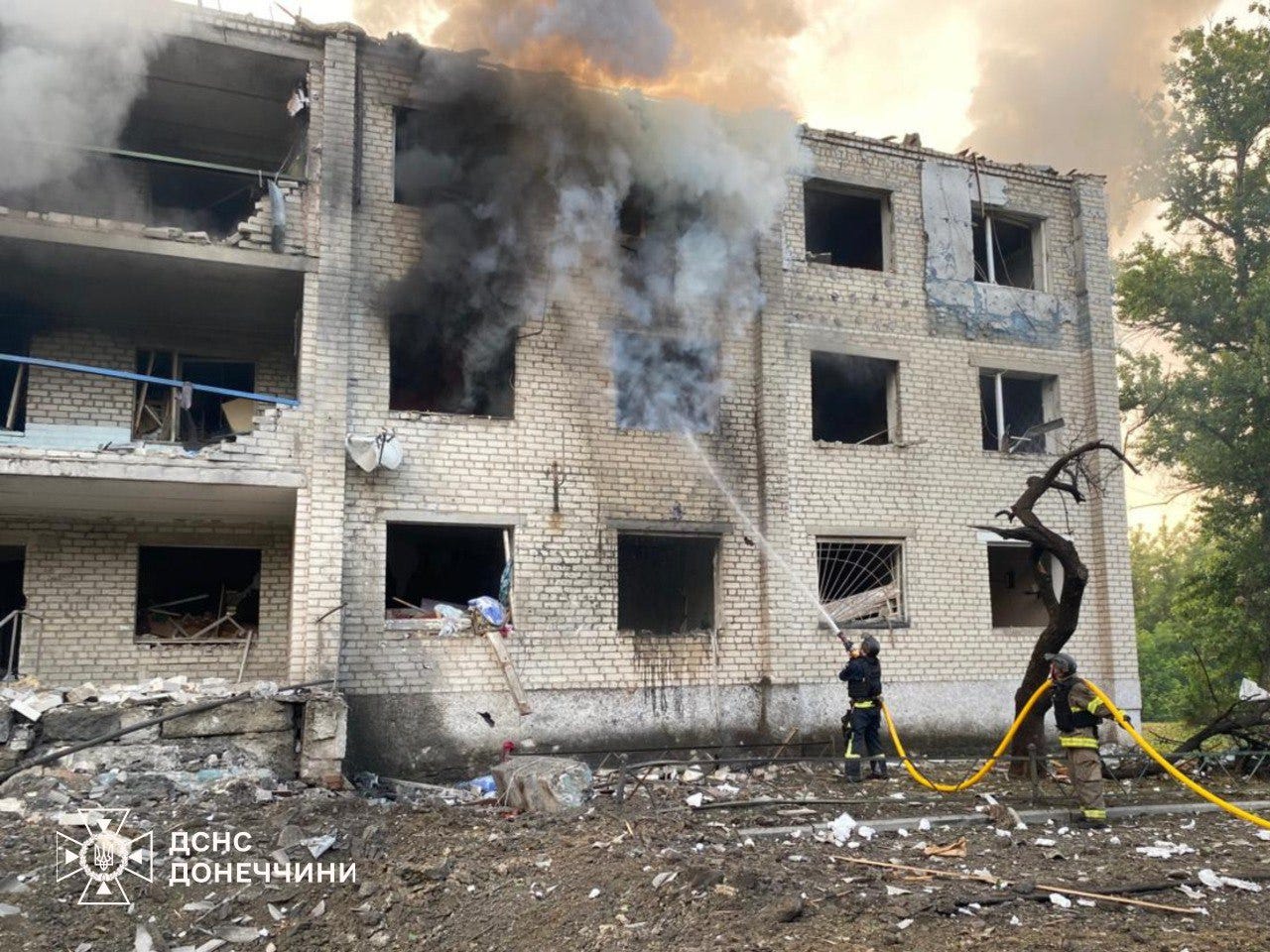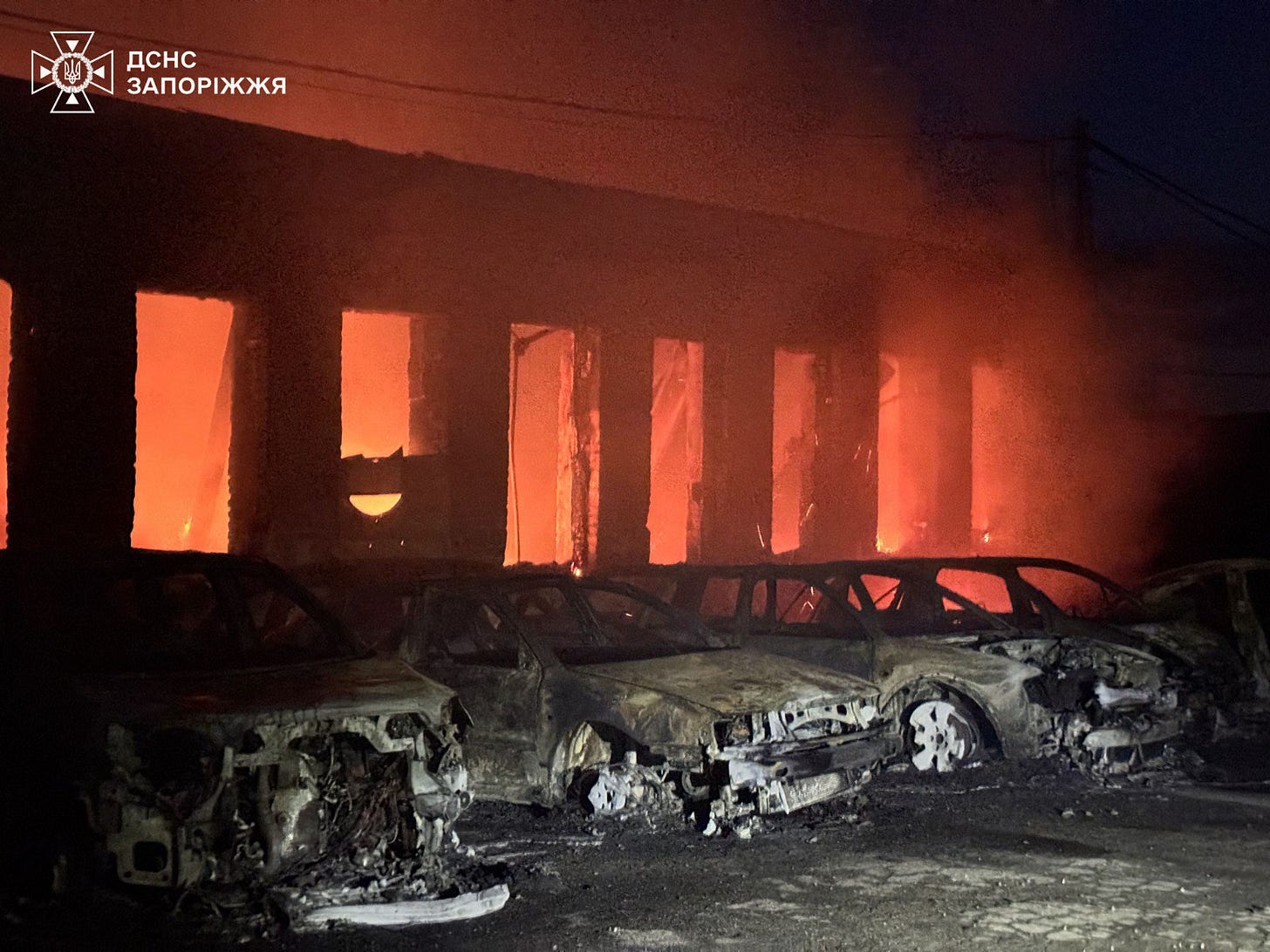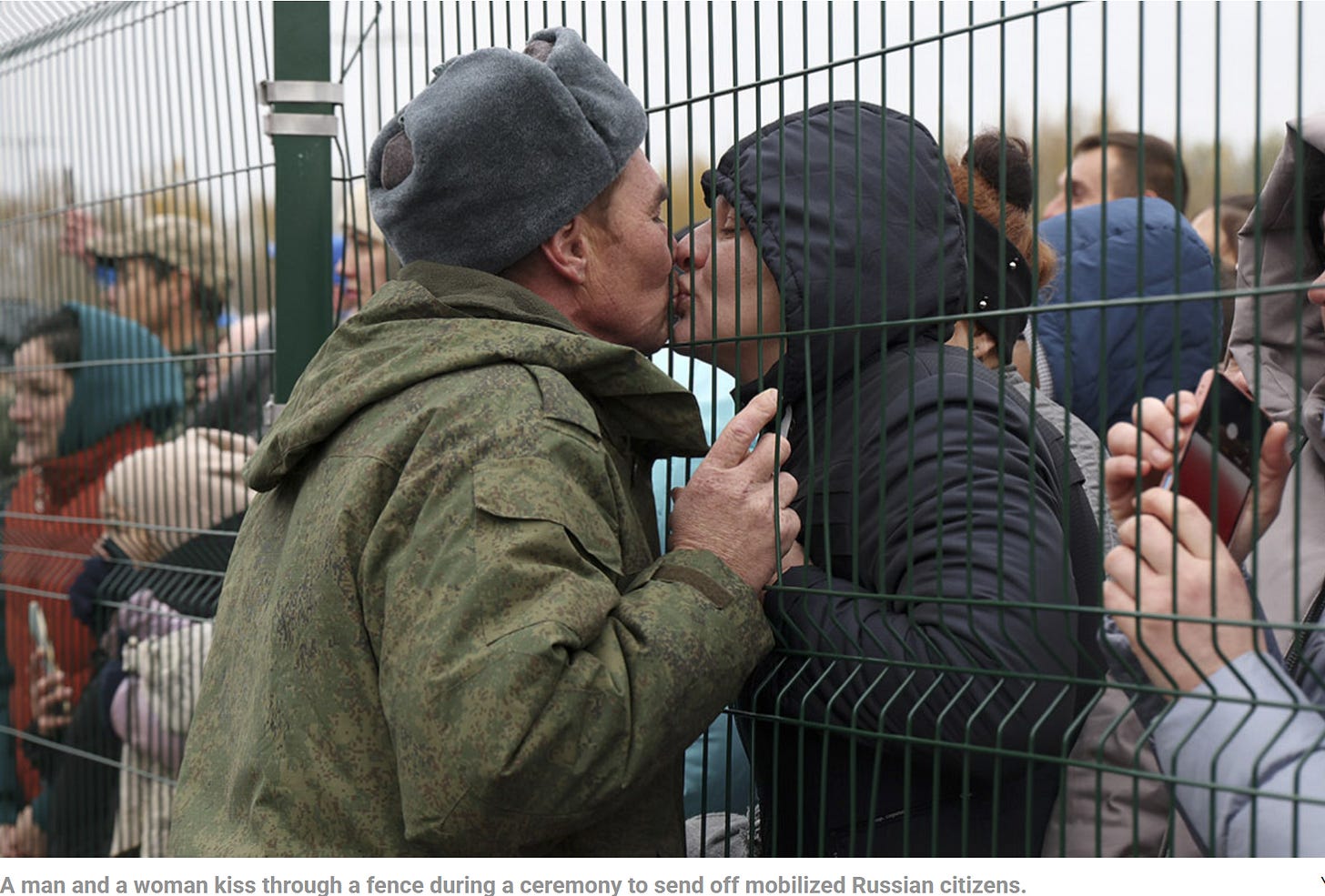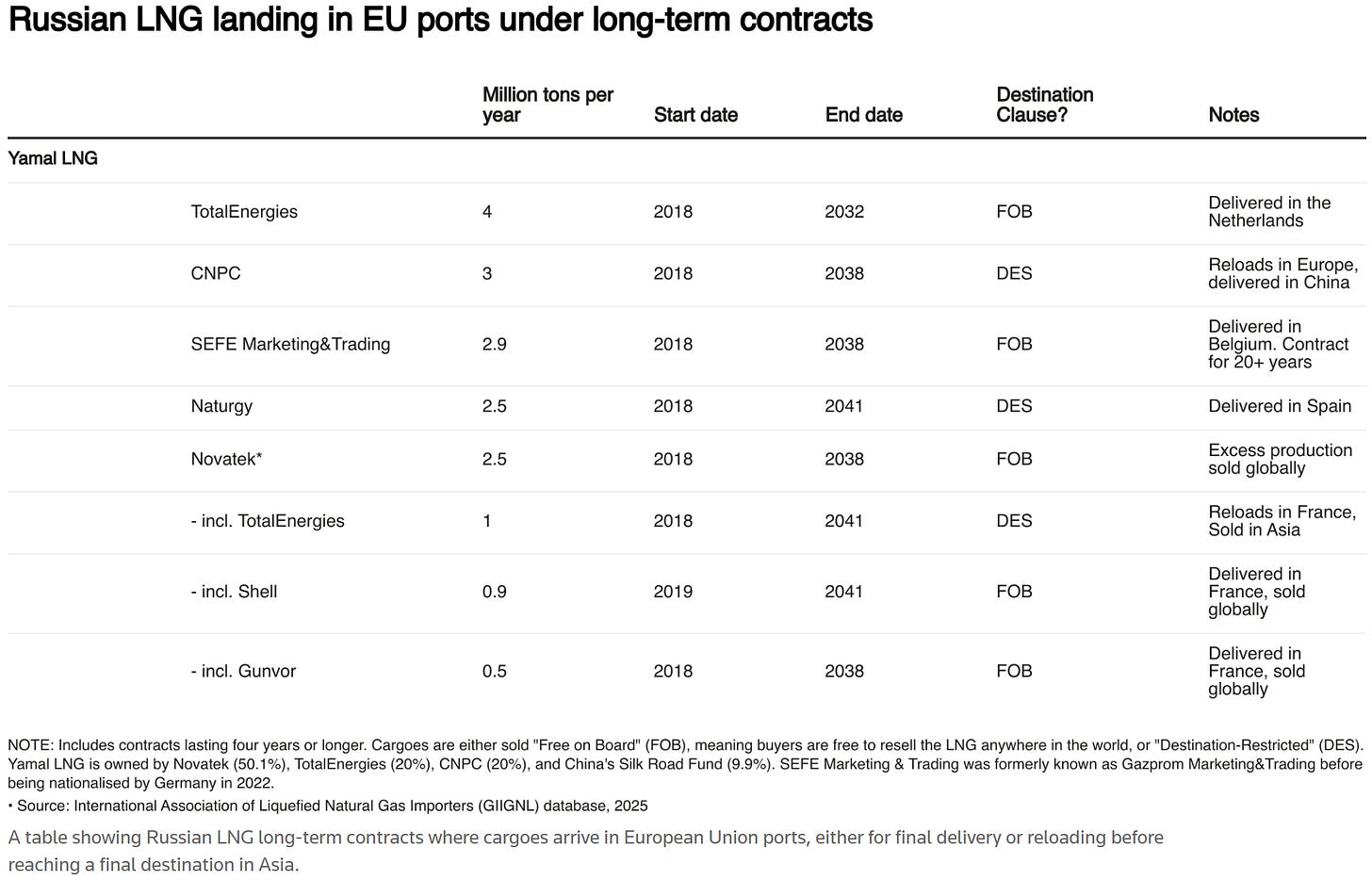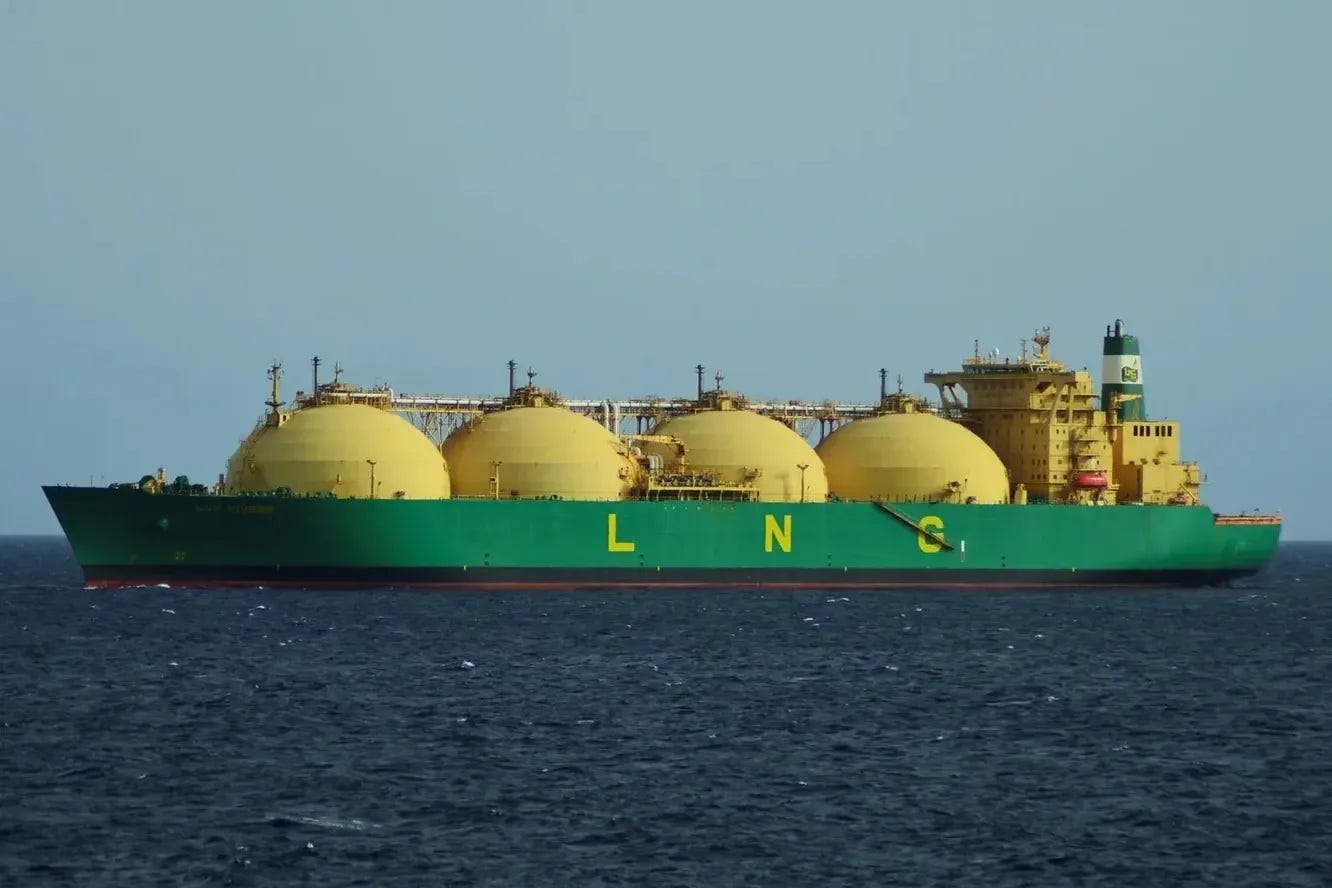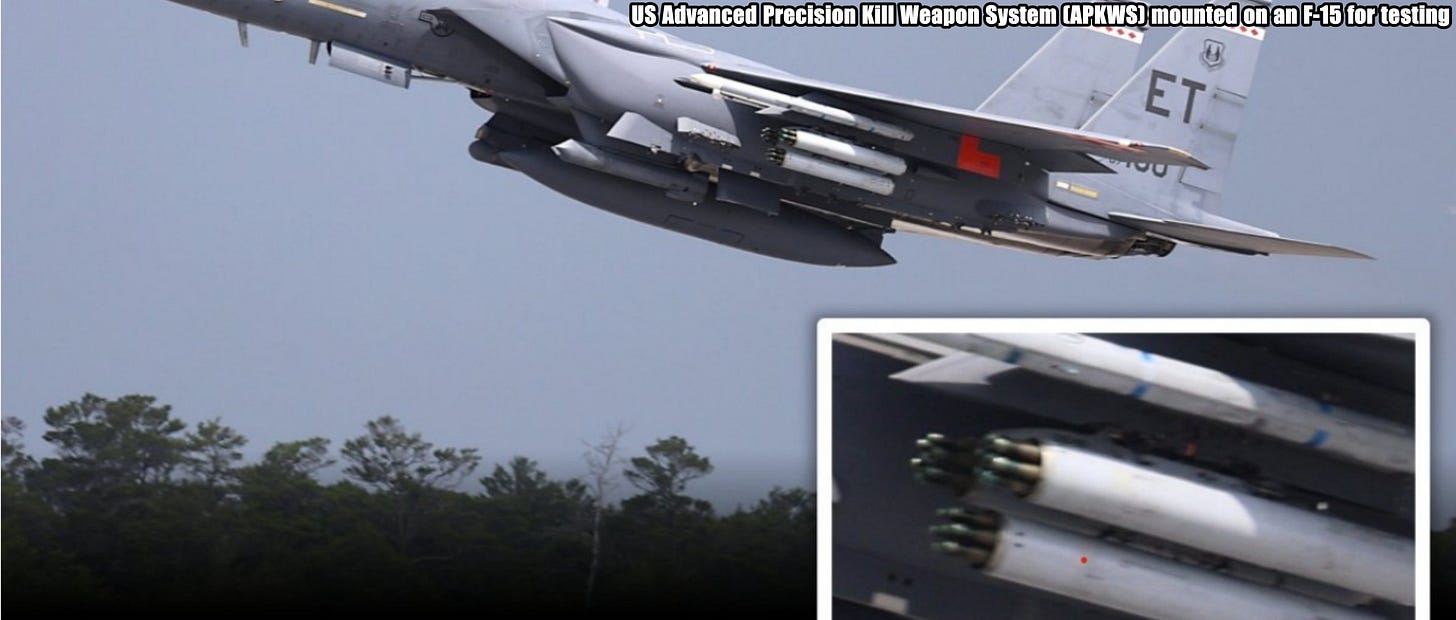Slava Ukraini! In early 2022 I began a Telegram channel aggregating news from a number of sources daily on the war in Ukraine. In June 2023 I began providing a daily draft for the Ukraine War Brief Podcast collecting news from over 70 sources daily, which formed the basis of the script. While the Podcast no longer exists I have continued to make this Brief available for my subscriberss here on Substack and anyone who wishes to keep up with the news from the war.
If you find the Brief informative I would appreciate it if you shared it with others.
All the latest news on the Russo-Ukraine War 6 days per week
ALONG THE CONTACT LINE
GSAFU Morning Report
For: Jun 18, 2025
The General Staff of the Armed Forces of Ukraine in its Operational Information update at 08:00 on Jun 18 stated that day 1211 of the full-scale invasion of the Russian Federation against Ukraine had begun.
The situation on the line of combat remains tense in some sectors. Ukrainian defenders continue to actively counteract the Russian aggressor, causing them significant losses in personnel, equipment and technology. Exhausting the enemy along the entire front line and continuing to disrupt the plans of Russian occupiers to advance deeper into the territory of Ukraine.
Over the past 24 hours, aviation, missile troops and artillery of the Defense Forces have hit 28 personnel, weapons and military equipment concentration areas, 10 artillery vehicles, one air defense vehicle, a radiolocation station, five BPLA control points, an ammunition warehouse and two other important enemy objects.
During the past day, 186 combat engagements took place.
Over the past 24 hours, the enemy carried out 2 missile strikes, 45 air strikes, used 3,600 attack drones and fired approximately 6,100 artillery shells across the positions of Ukrainian forces and civilians.
Air Force Daily Report
30 ENEMY UAVS DESTROYED
➖➖➖➖➖➖➖➖➖
On the night of Jun 18 (from 11:00 p.m. on Jun 17), the enemy attacked with 58 Shahed attack UAVs and simulator drones of various types from the directions: Kursk, Primorsko-Akhtarsk - Russia, Chauda - TOT Crimea.
The main areas of attack are Donetsk, Dnipropetrovsk and Zaporizhia regions.
The air attack was repelled by anti-aircraft missile troops, electronic warfare and unmanned systems units, and mobile fire groups of the Defense Forces of Ukraine.
As of 08:30, air defenses have neutralized 30 enemy Shahed UAVs (and other types of UAVs) in the east and north of the country. 12 were shot down by fire weapons, 18 were lost/suppressed by electronic warfare.
Enemy air attack targets were recorded in 9 locations.
Combat Operations in the Russian Federation
There has been no significant change in the combat environment in this sector since our last report.
The Khortytsia operational-strategic group
(Responsible for the northeastern part of Ukraine. )
Siversk Sector: Russian forces recently advanced in the Siversk direction.
Geolocated footage published on Jun 17 indicates that Russian forces recently advanced in northeastern Serebryanka (northeast of Siversk).
Toretsk Sector: Russian forces recently advanced in the Toretsk direction.
Geolocated footage published on Jun 17 indicates that Russian forces recently advanced north, east, and southeast of Dyliivka (north of Toretsk).
The Tavria operational-strategic group
(Responsible for the central-eastern and southeastern part of Ukraine.)
Pokrovsk Sector : Russian forces recently advanced in the Pokrovsk direction.
Geolocated footage published on Jun 15 indicates that Russian forces recently advanced northeast of Shevchenko Pershe (northeast of Pokrovsk).
Novopavlivka Sector: Russian forces recently advanced in the Novopavlivka direction.
Geolocated footage published on Jun 16 indicates that Russian forces recently advanced in northeastern Komar (south of Novopavlivka).
The Odesa operational-strategic group
(Responsible for Kherson, Qırım, (also known as Crimea) and the Black Sea.)
There has been no significant change in the combat environment in this sector since our last report.
TEMPORARILY OCCUPIED TERRITORIES
Nothing major to report.
THE HOME FRONT
6 killed, 49 injured in Russian attacks against Ukraine over the past day.
Russian attacks across Ukraine killed at least six civilians and injured at least 49, including a teenage boy, over the past day, the Kyiv Independent reported citing regional authorities reported on Jun 18.
In Chernihiv Oblast, a Russian drone attack against a village in the Snovsk community on Jun 17 injured a 68-year-old woman, Governor Viacheslav Chaus reported.
A Russian attack against Nikopol in Dnipropetrovsk Oblast on Jun 17 killed a 63-year-old man, Governor Serhii Lysak reported. Two more people were injured, and an educational institution and houses were damaged.
Russian attacks across Donetsk Oblast killed a civilian in Myrnohrad and injured eight others in the region, according to Governor Vadym Filashkin.
In Kharkiv Oblast, three people were injured in Russian attacks, including a 69-year-old woman and a 15-year-old boy in Izium and a 52-year-old man in Ripky, Governor Oleh Syniehubov reported.
Russian attacks against Kherson Oblast killed two people and injured 34, according to the regional governor, Oleksandr Prokudin.
In Sumy Oblast, one person was killed and another injured in a Russian drone attack against the Bilopillia community, and another man was killed during an air strike against the Yunakivka community, the regional administration reported.
Russia launched missile and drone attacks against Zaporizhzhia, damaging multiple residential and non-residential buildings but inflicting no casualties, Governor Ivan Fedorov said.
Ruslan Kravchenko approved as Ukraine's new Prosecutor General.
Ukraine's parliament on Jun 17 approved President Volodymyr Zelensky's nomination of 35-year-old Ruslan Kravchenko as the country's new prosecutor general, making him the youngest person to ever hold the post, the Kyiv Independent reported.
Kravchenko, a former military prosecutor and most recently head of Ukraine's tax service, replaces Andrii Kostin, who stepped down in October 2024 following a scandal involving fraudulent disability claims by dozens of prosecutors in Khmelnytskyi Oblast.
Lawmakers supported Kravchenko's appointment with 273 votes in favor, according to Yaroslav Zheleznyak, an MP from the Holos party.
A native of Sievierodonetsk in eastern Ukraine, Kravchenko served as a military prosecutor in Crimea before leaving the peninsula after Russia's annexation in 2014. He was one of the prosecutors in the case of fugitive President Viktor Yanukovych.
Kravchenko will now lead the Prosecutor General's Office amid war, reforms, and heightened scrutiny of law enforcement bodies' work. His predecessor, Kostin, resigned after the media revealed that at least 50 prosecutors had allegedly received disability status fraudulently — a scandal that sparked widespread criticism.
The Prosecutor General's Office has played a central role in documenting Russian war crimes and enforcing anti-corruption efforts, especially since Russia's full-scale invasion began in February 2022.
RUSSIAN WORLD
Russian society believes there is an epidemic of women marrying soldiers for money.
There is a growing SVO group on the social network VKontakte called “Blacklist”, the Moscow Times reports.
The group, which appeared this month, publishes information about women who have allegedly married Russian soldiers for financial gain or tricked them out of money.
More than three years into the full-scale invasion of Ukraine, Russian soldiers, who enjoy high salaries and social benefits, have become popular suitors for some low-income women. While married to a soldier, a woman can secretly take out loans in his name, embezzle his car, and, if he is killed in the war, receive a government payout of 5 million rubles (about $63,111).
But women suspected of marrying a soldier for money rather than love can increasingly expect to become a target of widespread vitriol online.
The idea behind Blacklist SVO came from a discussion on the popular VKontakte page Overheard at the SVO, where a follower warned soldiers about the mercenary nature of some Russian women.
“Create a blacklist of gold diggers who’ve already been caught in the act. With photos, their details, etc. I think it’d be really useful. I already have one candidate for the list,” replied another follower
Some of the targeted women are even forced to issue public apologies.
In April, police in the Tomsk region released a video of a real estate agent apologizing after she jokingly advised women to use compensation payments intended for relatives of fallen soldiers to buy apartments.
“It really turned out horribly. I ask for your forgiveness,” Marina Orlova says in her apology.
Later, a local court sentenced Orlova and the blogger who interviewed her to 80 hours of mandatory community service. The court found the women guilty of inciting hatred and humiliating human dignity.
Regional journalists have even produced dedicated reports about so-called “predatory” women.
Moderators of military dating groups often warn men not to send money to women, with posts noting that “too many beggars have popped up.” Heated debates frequently arise over who should pay for travel and other expenses for the first date.
In May, lawmakers in the lower-house State Duma proposed a bill that would prohibit dividing military compensation in divorce cases if the marriage occurred after Feb. 24, 2022.
Under the proposal, these payments would be considered the soldier’s personal property. Officials say the measure is intended to prevent women from “abusing the institution of marriage and family law.”
RELATED INTERNATIONAL NEWS
Carney pledges $4.3B for Ukraine, adds sanctions, condemns Russian barbarism.
Prime Minister Mark Carney announced billions in support for Ukraine and tougher sanctions against Russia Tuesday as he condemned Russia's "barbarism" following its deadliest attack this year on Kyiv, CBC reports.
Standing next to Ukrainian President Volodymyr Zelenskyy, ahead of a sideline meeting on the final day of the G7 summit in Alberta, Carney said a new $2-billion package would fund helicopters, drones and ammunition. His office said money is going toward armoured vehicles as well.
Canada is also lending the war-torn country $2.3-billion to help rebuild its infrastructure and public systems. The Prime Minister's Office said the loan will be repaid by interest charged on Russian assets frozen in Europe.
Canada is also promising a suite of sanctions targeting Russian individuals, entities contributing to the evasion of sanctions and 200 vessels, part of what is often called Russia's "shadow fleet." The aging tankers are used to evade oil price cap sanctions.
Despite Zelenskyy's attendance, the G7 leaders did not issue a joint statement on Ukraine. That's because the U.S. wouldn't agree to the final wording, a senior Canadian government source said.
While there was one originally planned, the source said six of the leaders were prepared to go far in their language but the Americans wanted to water it down. The official said the Americans did not want some pointed remarks about Russia to be included because they feared it would compromise their negotiations with that country over “ending the war”.
The funding follows a deadly night in Ukraine's capital during which a barrage of Russian missile and drone strikes hit Kyiv, killing at least a dozen people and injuring more than 100.
"I would like to start with condemning in the strongest terms the latest outrage, barbarism from Russia," Carney said. "This underscores the importance of standing in total solidarity with Ukraine, with the Ukrainian people."
Zelenskyy offered condolences to the families of the victims as he thanked Carney for the support. "It's a big tragedy for us and we need support from our allies," he said.
"We are ready for the peace negotiations, unconditional ceasefire. I think it's very important, but for this we need pressure."
Zelenskyy had hoped to meet one-on-one with U.S. President Donald Trump to push for harsher sanctions against Russia, but the remaining six leaders at the G7 are forging ahead after he left the summit Monday night.
Trump touched down in Kananaskis Sunday night and was expected to remain until Tuesday for meetings with other global leaders. But the president left after Monday's family dinner to deal with the escalating war between Israel and Iran.
"I have to be back early. I loved it. I tell you, I loved it. And I think we got a lot done," Trump told reporters.
Ukraine's parliament passes state asset agency reform crucial for EU integration.
Ukraine's parliament passed a reform of the Asset Recovery and Management Agency (ARMA) on June 18, a key step toward European integration and a condition listed in the EU's Ukraine Facility plan, the Kyiv Independent reported.
The legislation passed with the support of 253 lawmakers "after months of obstructions... unblocking 600 million euros ($690 million) in EU funds," lawmaker Yaroslav Zhelezniak said.
The ARMA is Ukraine's national agency tasked with locating, recovering, and managing assets seized in criminal proceedings, namely during corruption cases.
Proposed reforms include stricter integrity and qualification standards for leadership candidates and merit-based hiring through open competitions involving civil society. They also call for independent external audits, clear deadlines for appointing asset managers, and the use of certified professionals held legally accountable for mismanagement.
The Ukraine Facility, an EU program providing Ukraine with 50 billion euros ($58 billion) in multi-year financial support contingent on reforms, set the end of March as the deadline for the ARMA's reform.
Anti-corruption experts, lawmakers, and Transparency International in Ukraine have backed the reforms, but discussions have dragged on for months since several versions of the bill were introduced in December 2024 and January.
The ARMA has long criticized the proposed legislation, arguing it had already carried out substantial and "transformative" reforms since 2023.
Transparency International reacted by saying that the ARMA's "public communication suggests that the agency’s primary concern is not the introduction of meaningful reforms, but ensuring that its current leadership can continue operating as it has."
Ukraine has embarked on extensive reforms as part of its efforts to join the EU and other Western structures, though Russia's full-scale invasion has presented fresh challenges to this effort.
The EU proposes a ban on Russian gas imports by the end of 2027.
The European Commission on Tuesday proposed a legally binding ban on EU imports of Russian gas and liquefied natural gas (LNG) by the end of 2027, using legal measures to ensure the plan cannot be blocked by EU members Hungary and Slovakia, Reuters reports.
The proposals set out how the European Union plans to fix into law its vow to end decades-old energy relations with Europe's former top gas supplier, made after Moscow's 2022 invasion of Ukraine.
First, imports would be banned from January 1, 2026, under any Russian pipeline gas and LNG contracts signed during the remainder of this year.
Imports under short-term Russian gas deals - defined as those lasting less than one year - signed before June 17, 2025, would be banned from June 17 next year.
Finally, imports under existing long-term Russian contracts would be banned from January 1, 2028, effectively ending the EU's use of Russian gas by this date, the Commission said.
Hungary and Slovakia, which still import Russian gas via pipeline and have opposed the EU plans, would have until January 1, 2028, to end their imports, including those on short-term contracts.
Companies including TotalEnergies and Spain's Naturgy have Russian LNG contracts extending into the 2030s.
EU LNG terminals would also be gradually banned from providing services to Russian customers, and companies importing Russian gas would have to disclose information on their contracts to EU and national authorities, Reuters reported previously.
EU energy commissioner Dan Jorgensen said on Monday that the measures were designed to be legally strong enough for companies to invoke the contractual clause of "force majeure" - an unforeseeable event - to break their Russian gas contracts.
Slovakia and Hungary, which have sought to maintain close political ties with Russia, say switching to alternatives would increase energy prices. They have vowed to block sanctions on Russian energy, which require unanimous approval from all EU countries, and have opposed the ban.
To get around this, the Commission based its proposed ban on EU trade and energy law - a legal basis that can be passed with support from a reinforced majority of countries and a majority of the European Parliament. (There can be no veto)
About 19% of Europe's gas still comes from Russia, via the TurkStream pipeline and LNG shipments, down from roughly 45% before 2022.
To replace Russian supplies, the EU has signalled it will expand clean energy and could import more U.S. LNG.
Spain, Belgium, the Netherlands and France import Russian LNG but have all said they fully support the ban, emphasising that it must be sufficiently robust legally to avoid exposing companies to penalties or arbitration, EU diplomats told Reuters.
Lawyers have said it would be difficult to eliminate risk for companies if the EU does not use sanctions.
"Arbitration is possible. We expect that some of the contract partners ... may try to use the courts," a Commission official said.
MILITARY & TECH
Ukraine receives new OSKAR kamikaze drone from France.
Ukrainian troops have received a new loitering munition, the MV-25 OSKAR, developed by France’s KNDS France in partnership with DELAIR and EOS Technologie, Oboronka reports.
The weapon is part of the MATARIS family of UAVs and has already been deployed for operational testing by the Ukrainian Armed Forces.
The MV-25 OSKAR is engineered for strikes against infantry and lightly armored vehicles. Equipped with a 550-gram high-explosive fragmentation warhead, the drone can operate at a range of up to 25 kilometers and stay airborne for as long as 45 minutes. First field tests were conducted in June 2024, and early feedback from Ukrainian forces has been positive, the report said.
The system is compact and easily deployable, requiring no prepared runway or launch infrastructure. Its low radar signature and encrypted, jam-resistant communications channel allow for stable navigation even without GPS signal — a critical feature for modern battlefield conditions.
According to the developers, the entire project went from concept to deployment in just two years. Its modular design is tailored to Ukraine’s operational needs, offering flexibility and reduced logistics burden in front-line environments.
In a related development, French automaker Renault is in discussions with the French Ministry of Defense about establishing drone production facilities in Ukraine. No official decision has been made, but Renault is reportedly awaiting further guidance from defense officials following preliminary talks.
Sources suggest that Renault may cooperate with a smaller defense firm to set up manufacturing operations at a location far from the front line. These UAVs could be used by both Ukrainian and French armed forces, the report added.
The MV-25 OSKAR’s field introduction marks another example of how Ukraine is accelerating its integration of Western unmanned systems to address evolving battlefield threats from Russia’s ground and air forces.
Baykar Kizilelma UAV could become an integral part of Ukraine’s air defence.
The fourth prototype of Baykar’s Bayraktar Kizilelma unmanned fighter contines fight testing, which began in late May. Amid growing drone threats, it may soon offer an effective solution against russian loitering munitions like the Shahed series, Defense Express reports.
Baykar plans to equip Kizilelma with an advanced AESA radar system, enabling it to counter air threats in addition to ground targets—exactly what is needed to counter Shahed drones.
Countries such as Ukraine, Israel, the U.S., and the U.K. currently rely on manned fighter jets to intercept drones like the Shahed, putting pilots at risk from friendly fire or debris. Manned interceptions also strain air force resources, as each response requires trained pilots on constant alert. A fighter drone like Kizilelma helps to minimize these risks. With an endurance of 5 to 6 hours, it can remain airborne long enough to respond to multiple threats and serve as a viable air defense tool.
The drone is expected to carry short- and medium-range air-to-air missiles. While these are costlier than traditional anti-aircraft guns, they offer much higher interception success rates against agile drones like the Shahed.
Among the planned armaments is the Turkish Roketsan Cirit missile—a cost-effective precision-guided munition similar to the American APKWS, which Ukraine has successfully used for drone interception. Integrating such weapons gives Kizilelma a cheaper but reliable alternative to more expensive air defense systems.
Although still in the testing phase, Baykar’s Kizilelma has strong future potential for air defense roles. With a Baykar production facility being built in Ukraine and the use of Ukrainian jet engines, this drone-fighter hybrid presents an appealing long-term solution for countering aerial threats.
That’s it for today’s Brief folks if you would like to keep up with events in Ukraine daily please consider subscribing, it’s free!







